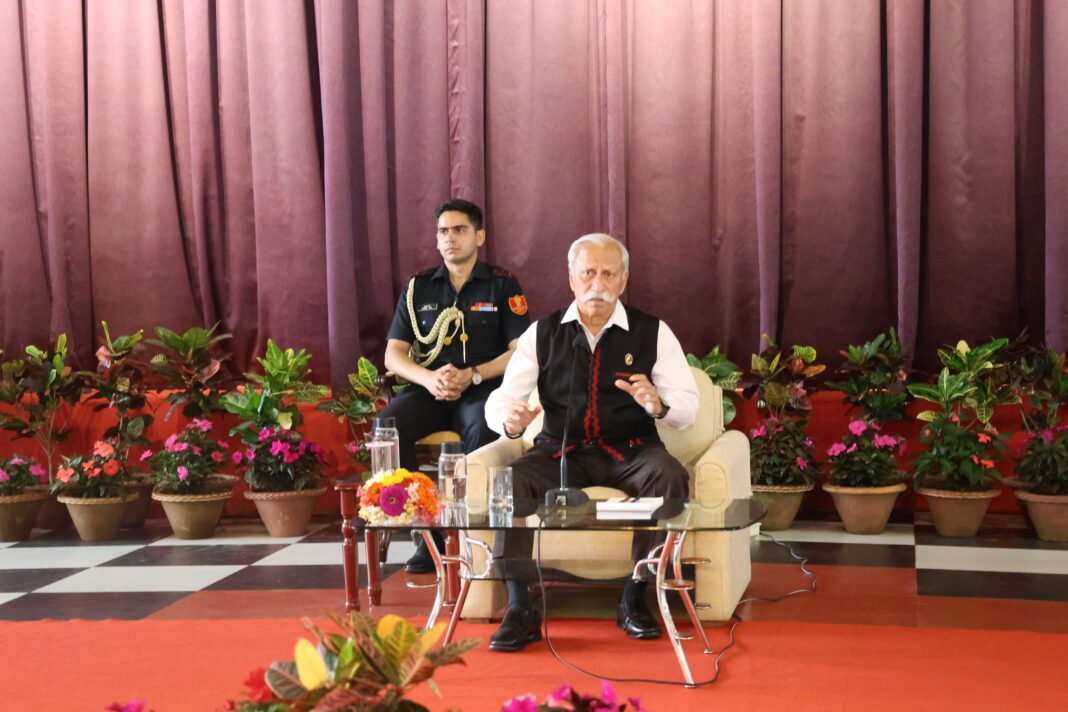HT Bureau
NAMSAI, May 11: In a significant step toward fostering communal harmony and dispelling misinformation in the wake of India’s latest counter-terror operation, the Governor of Arunachal Pradesh, Lt General K T Parnaik, PVSM, UYSM, YSM (Retd), convened a Sarva Dharma Meet at Raj Bhavan on Saturday.
The interfaith gathering brought together religious leaders and representatives from various communities to deliberate on the implications and purpose of Operation Sindoor, which was launched by India on May 7, 2025.
According to an official statement issued by Raj Bhavan, the Governor addressed the gathering in a spirit of inclusivity, underlining that Operation Sindoortragic terror attack in Pahalgam on April 22.
The attack claimed several innocent lives and shocked the nation, prompting a calibrated but firm response from Indian security forces.
The Governor emphasised that the operation was “precise, restrained, and exclusively targeted terrorist camps” spread across nine identified locations.
He clarified that India’s actions were not driven by a desire for revenge, but by the imperative to safeguard citizens and maintain national security.
“This was not retaliation—it was a necessary act to protect our people,” he said, reaffirming India’s long-standing commitment to peace and stability.
Drawing on his extensive military background, including his tenure as Chief of the Northern Command—India’s largest operational military formation—the Governor elaborated that the armed forces executed the operation with “measured and calibrated” actions.
He stated that the mission was designed to avoid both escalation and collateral damage.
“There were no civilian casualties, no damage to any military installations. That precision reflects the professionalism of our armed forces,” he said.
He also revealed that Pakistani forces had made attempts to stoke communal discord by targeting religious institutions during this period.
However, these efforts were swiftly and effectively thwarted by Indian security forces. “Their intention was to create disharmony among India’s diverse communities. But we stood united—and vigilant,” the Governor remarked.
The Governor reiterated that India did not initiate aggression.
He noted that global leaders have supported India’s right to self-defense, and the broad international consensus reflects an acknowledgment that security is a prerequisite for peace.
“Our response was both responsible and resolute,” he added.
Calling upon the people of Arunachal Pradesh—particularly religious leaders—the Governor urged everyone to remain vigilant against fake news and divisive narratives.
He stressed the importance of unity in times of national challenge and expressed confidence in the collective wisdom and patriotic spirit of the state’s citizens.
“Every citizen should be well-informed about the capabilities and intentions of our armed forces.
National awareness is the foundation of national strength,” he said, while highlighting the enduring patriotism of Arunachali people.
He paid homage to their historic contributions, particularly their unwavering support to the Indian Army during the 1962 Sino-India War, noting that “the spirit of nationalism runs deep in Arunachal Pradesh.”
The meeting saw the active participation of Dharm Gurus and representatives from a spectrum of faiths, including Indigenous traditions, Hinduism, Islam, Sikhism, and Christianity.
Civil society members, educationists, and intellectuals also attended the session, contributing to a robust dialogue around national security and community cohesion.
In their collective response, the participants thanked the Governor for initiating a transparent and inclusive conversation at a critical juncture.
They expressed their unanimous resolve to uphold truth, peace, and unity, and pledged to work together to counter misinformation and resist any attempt to fragment the social fabric of the nation.
As India continues to navigate the complexities of external threats and internal resilience, the Sarva Dharma Meet served as a powerful symbol of solidarity, mutual respect, and shared responsibility—a message echoed not only within Arunachal Pradesh, but across the country.












